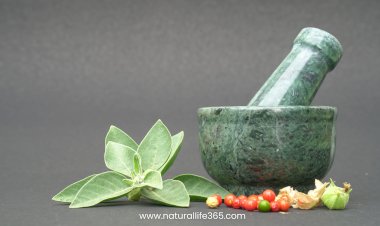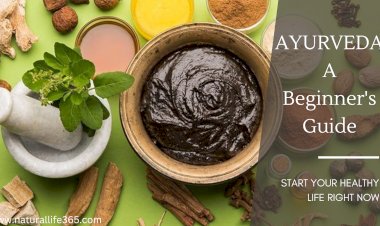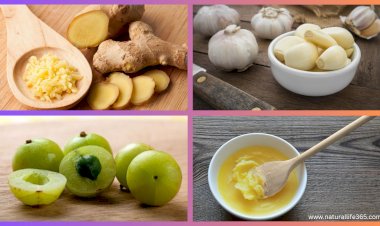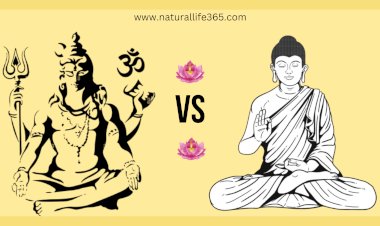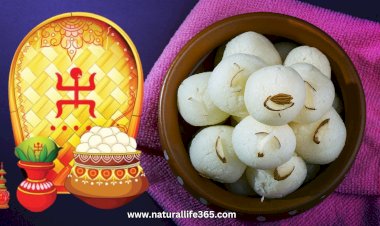Do Curry Leaves Have Medicinal Properties?
The benefits of curry leaves are attributed mostly to their medicinal properties. Here are the many medicinal properties of curry leaves.
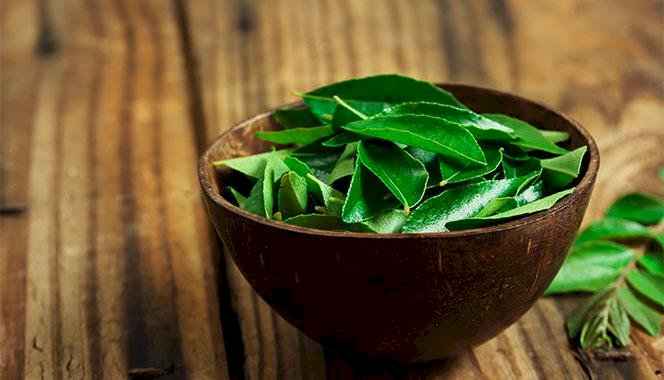
Depending on the country you live in and the type of diet you have, you may have heard of curry leaves and this is because the Murraya koenigii tree is native to India, Bangladesh, and Sri Lanka. However, when Indians and Sri Lankans began to travel and move abroad, the curry leaf traveled with them as well. Thus, curry leaves began to appear in foreign markets and in their cuisines as well. Today, many Indian homes, have a curry leaves plant in their garden to have fresh leaves.
In India, the curry leaf is widely used both for preparing dishes and for Ayurvedic medicinal use. If you are wondering if curry leaves have medicinal properties, in this blog you will find good information.
Health Benefits Of Curry Leaves
Before we start explaining the health benefits of curry leaves in more detail, it is important to note that curry powder and curry leaves are not the same. So if someone wants to tell you that both products are the same, don't be fooled because curry powder is a mixture of spices like black pepper, cardamom, coriander, cinnamon, cumin, etc., and curry leaves are a plant itself, so both products have different flavors and properties.
You may also want to read How Can You Purify Your Blood with Ayurvedic Medicine?
Rich in Antioxidants
Research has shown that curry leaves contain many compounds, including linalool, alpha-terpinene, myrcene, mahanimbine, caryophyllene, murrayanol, and alpha-pinene, as well as protective plant substances, such as alkaloids, glycosides, and phenolics, which give this aromatic herb potent health benefits.
Many of these compounds function as antioxidants in our body, which play an essential role in keeping the body healthy and disease-free. These compounds that are removed are known as free radicals, a condition that is associated with the development of chronic diseases.
For example, a study in rats showed that oral treatment with antioxidant-rich curry leaf extracts protected against drug-induced stomach damage and reduced markers of oxidative stress, compared to a placebo group.
Other animal studies have shown that curry leaf extract may help protect against oxidative-induced damage to the nervous system, heart, brain, and kidneys.
While these studies have been successful in animals, human research on the antioxidant effects of curry leaves is still lacking. However, there is no doubt that curry leaves are packed with plant compounds that can help promote overall health.
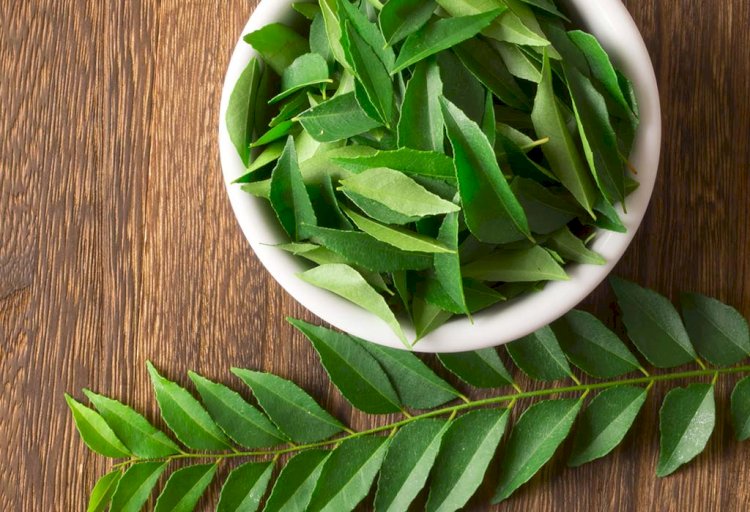
Reduce the cholesterol
As you know, high cholesterol levels bring heart problems and curry leaves could reduce these risk factors.
According to research, consuming curry leaves can benefit heart health in several ways. For example, animal studies have found that curry leaf extract may help reduce high cholesterol and triglyceride levels. A 2-week study in rats with obesity induced by a high-fat diet showed that oral treatment with 136 mg of curry leaf extract per pound (300 mg per kg) of body weight per day significantly reduced cholesterol levels and triglycerides. These results were correlated with the high amount of an alkaloid called mahanimbine in the leaves.
In another 12-week study in mice on a high-fat diet, mahanimbine prevented diet-induced complications such as high blood lipids, fat accumulation, inflammation, and oxidative stress, all of which can increase the risk of heart disease.
Other animal studies have also shown that curry leaf extract lowers cholesterol levels.
May Have Neuroprotective Properties
Some research has shown that curry leaves may help protect the health of the nervous system, including the brain.
Alzheimer's disease is a progressive brain disease characterized by loss of neurons and signs of oxidative stress.
Studies have shown that curry leaves contain substances that may help protect against neurodegenerative diseases such as Alzheimer's disease.
A study in mice found that oral treatment with high doses of curry leaf extract improved levels of brain-protecting antioxidants, including glutathione peroxidase (GPx), glutathione reductase (GRD), and superoxide dismutase (SOD), in brain cells.
The extract also reduced the amount of oxidative damage to brain cells, as well as enzymes associated with the progression of Alzheimer's disease.
Another study showed that oral treatment with curry leaf extract for 15 days improved memory scores in young and old mice with induced dementia.

May Have Anticancer Effects
Curry leaves contain compounds that have significant anti-cancer effects.
A test-tube study involving three samples of curry leaf extract grown in different locations in Malaysia found that they all exhibited powerful anti-cancer effects and inhibited the growth of an aggressive type of breast cancer.
Another test-tube study found that curry leaf extract altered the growth of two types of breast cancer cells, as well as decreased cell viability. The extract also induced the death of breast cancer cells.
Additionally, curry leaf extract is toxic to cervical cancer cells in test-tube research.
In a study of mice with breast cancer, oral administration of curry leaf extract reduced tumor growth and inhibited the spread of cancer cells to the lungs.
Additionally, test-tube studies indicate that an alkaloid compound in curry leaves called girinimbine induces colon cancer cell death.
In addition to girinimbine, researchers attribute these powerful anticancer effects to the antioxidants in curry leaves, which include quercetin, catechin, and gallic acid.
While it is clear that curry leaves contain compounds that have the potential to fight certain cancer cells, their effectiveness in humans needs to be investigated.
More Benefits
In addition to the potential benefits listed above, curry leaves may benefit health in the following ways:
- Beneficial for blood sugar control. Animal research has shown that curry leaf extract may help reduce high blood sugar levels and protect against diabetes-related symptoms, including nerve pain and kidney damage.
- May have analgesic properties. Rodent research has shown that oral administration of curry extract significantly reduces induced pain.
- Have anti-inflammatory effects. Curry leaves contain a wide range of anti-inflammatory compounds, and animal research has shown that curry leaf extract may help reduce inflammation-related genes and proteins.
- Offers antibacterial properties. A test-tube study found that curry leaf extract inhibited the growth of potentially harmful bacteria, including Corynebacterium tuberculosis and Streptococcus pyogenes.
It should be noted that these benefits have been shown in test-tube or animal experiments. Future research in humans is needed to substantiate these potential benefits.
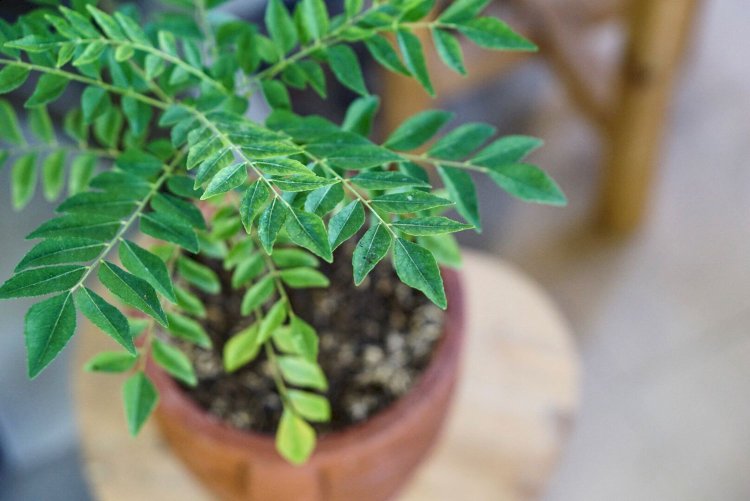
Curry leaves are not only very tasty, but they are also full of beneficial plant compounds that can benefit your health in many ways.
Research has shown that consuming them can help improve antioxidant defenses in your body, fight cancer cells, reduce risk factors for heart disease, and protect neurological health.
The best part is that curry leaves can be added to a wide range of recipes to enhance your meals' flavor and health benefits.
You may also want to read Turmeric vs Curcumin: Which Should You Take?
References
Some of the links in this content may be affiliate links. This means that if you click on one of the links and make a purchase, I may receive a commission (at no extra charge to you). However, I only recommend products that I personally use and have tested myself. Also, understand that I have taken reasonable steps to ensure that the information on this content is accurate, but I cannot represent that the website(s) mentioned in this post are free from errors. Please, check the Affiliate Disclosure at the bottom of this website.









